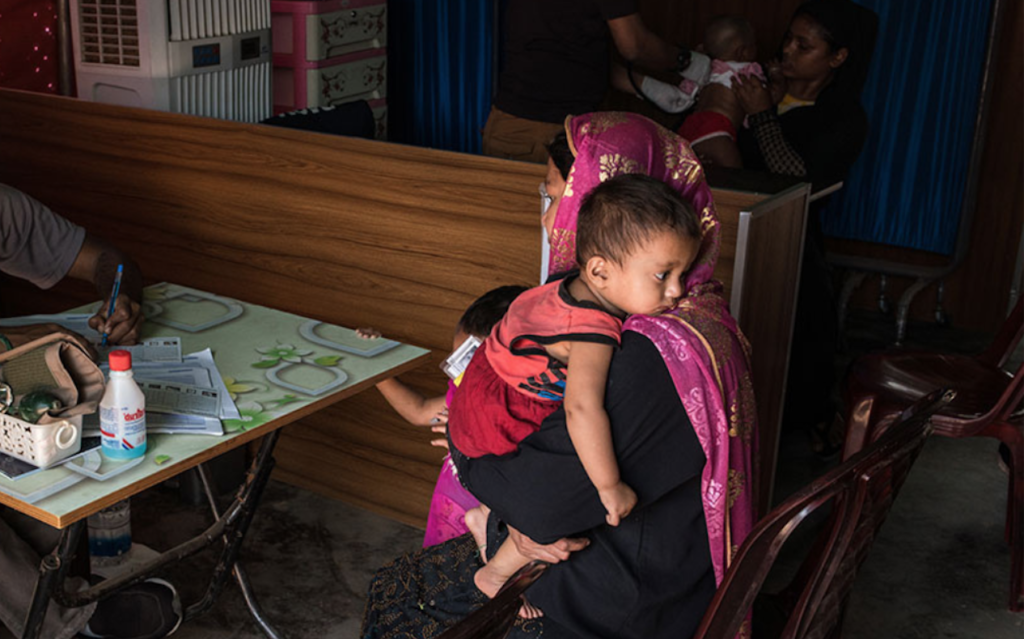World Children’s Day, celebrated on November 20th, is a global day of advocacy and action for children’s rights. On this day, we reflect on the progress made in advancing the well-being of children and the challenges that persist. Today we take this opportunity to amplify the voices of the children living in conflict zones.
Children in War Zones
In 2021, an estimated one in six children (449 million), were living in conflict zones. Africa bore the highest number of affected children (180 million), followed by Asia (152 million) and the Americas (64 million). The Middle East had the highest proportion of children living in conflict areas, with one in three children affected.
These children continue to suffer the most severe consequences of armed conflicts. They face grave violations that scar them for life. Recruitment of child soldiers, abduction, sexual violence, denial of humanitarian access, attacks on schools and hospitals, and maiming are some of the atrocities these children are forced to endure.
Recruitment of Child Soldiers
One of the most disturbing aspects of conflict zones is the recruitment of child soldiers. Thousands of children are recruited and used in armed conflicts across the world. Between 2005 and 2022, more than 105,000 children were verified as recruited and used by parties to the conflict, but the actual number of cases is believed to be significantly higher. The psychological scars of this experience are often irreparable, leaving these children in dire need of support.
Vital goods in conflict
During conflict, children and their families often lose access to essential goods, such as food and clean water. The violence disrupts farming, making it challenging to produce and distribute food. Markets close down, leaving families struggling to secure meals and simultaneously, infrastructure like water supply systems are destroyed, depriving communities of safe drinking water. This results in malnutrition, dehydration, and a heightened risk of waterborne diseases.
To support communities who face such circumstances, MOAS has been shipping therapeutic food to affected areas to fight malnutrition. With unwavering support from our donors and partners, we’re also bridging gaps in health care by providing life-saving medical supplies. Please consider a donation to support our efforts.
The Impact on Education
Conflict displaces vast numbers of people, including many children. Those who have been uprooted from their homes by conflict and disasters face unique challenges. Language and cultural barriers, xenophobia, exclusion, and legal obstacles often hinder displaced children’s access to education.
Education is a fundamental right for every child. However, in 2021, 27 million children of primary and lower secondary school age were out of school in 24 conflict-affected countries. This jeopardizes their future and leaves them vulnerable to exploitation.
In Sudan, estimated 19 million children are currently out of school as the brutal conflict has been raging for seven months now. 6.5 million of these children lost access to school due to increased violence and insecurity in their region, with 10,400 schools closed in conflict-affected areas.
The Need for Safe and Legal Routes
It is essential that children in conflict zones have access to Safe and Legal migration Routes to allow them to migrate to safer areas. Establishing safe and legal migration routes provides these vulnerable children with a lifeline to escape the horrors of war. Such routes also ensure that children can access essential services, like education and healthcare, and have a chance at a better future. Moreover, safe migration routes help combat human trafficking and prevent children from falling prey to criminal organizations. To support the implementation of Safe and Legal Routes, please sign our appeal. By prioritizing the creation and maintenance of these pathways, we can offer hope and security to the most innocent victims of conflict.
Final Thoughts
World Children’s Day reminds us of the ongoing crisis faced by children in conflict zones worldwide, who suffer the most from the consequences of armed conflict. The world must come together to protect and support these young lives, ensuring they have access to education, healthcare, and the opportunities they need to build a better future.
If you are interested in the work of MOAS and our partners, please follow us on social media, sign up for our newsletter and share our content. You can also reach out to us at any time via [email protected]. If you want to support our operations, please give what you can at www.moas.eu/donate.


